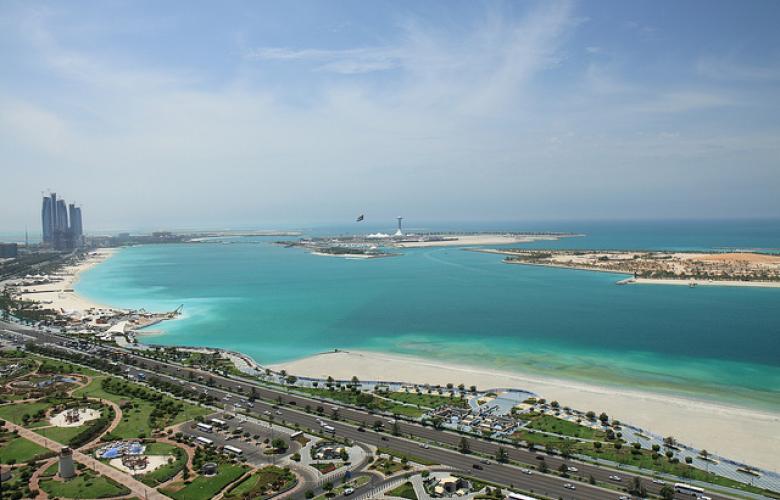Buying property in Abu Dhabi
Buying property in Abu Dhabi
An introduction to purchasing real estate in Abu Dhabi.
This article is intended as a preliminary guide only and refers to some but not all elements required to consider in detail prior to starting any property dealings or due diligence. Property dealings are often complex, especially in foreign countries and we highly recommend you seek independent professional advice... read more...
If you are looking to invest or live in your own property in Abu Dhabi, there is a variety of options available, but currently there are limitations. Expats are allowed to purchase interests in properties located only in areas of Abu Dhabi known as Investment Zones. Your real estate agent will be able to assist in determining whether the property you wish to buy is located in an Investment Zone or not. Some of the most popular investment zones include Reem Island, Raha Beach, Al Reef, Yas Island and Saadiyat Island. Find more on these areas here.
Can expats own property in Abu Dhabi?
Under Abu Dhabi’s property laws, expats are entitled to purchase, sell, lease out, mortgage, and invest in apartments (excluding lands) in Investment Zones. You can enjoy 99-years leases of already built-up land, (known as ‘usufruct’ leases), and 50-year development leases (known as ‘musataha’ leases), which allow you to build on undeveloped land. Musataha leases may be renewed for like periods of time upon agreement between the parties. Unless otherwise agreed between the parties, a person holding a ‘usufruct’ or ‘musataha’ right which has more than 10 years left to run may transfer that right without the permission of the owner/landlord of the land. However, unless agreed otherwise, the freehold owner may not mortgage their interest without the consent of the owner of the ‘usufruct’ or ‘musataha’ right. Find more local terminology here.
Proposed designated investment zones
Recently it has been announced by the Abu Dhabi Municipality that foreigners will now be allowed to own property in Abu Dhabi on a freehold basis in designated investment zones as opposed to leasehold arrangements with 99-year leases. However, the situation would be clearer once details of such freehold arrangement or an explanation would be provided on how exactly it shall differ from other property rights in Abu Dhabi. Check with your agent or lawyer for an update on this exciting development.
Purchasing ‘off-plan’ property in Abu Dhabi
To limit financial risk and debts, many project developers will sell units ‘off-plan,’ meaning before construction is completed, or even not yet begun. They understand that if buyers cannot see a physical property at the beginning, they will demand a lower price, while relying purely on the developer's reputation, the property location, artistic impressions and computer simulations on which to base their decision to purchase. This allows investors to buy at the earliest and lowest possible price and achieve maximum returns on their investment. Many investors decide to hold onto their properties for a number of years and receive excellent rental income, often helping to cover their monthly loan repayments. Over time they watch the value of their property potentially increase steadily. Other buyers sell their off-plan contracts prior to project completion, cashing in on capital growth, as well as avoiding the costs of actually owning the property. Buyers would pay only around 10-40% of the purchase price in the form of a deposit, depending on the developer, while the rest is paid as regular payments upon construction milestones, which may be financed by a mortgage.
For ‘off-plan’ properties, ensure the developer is registered with the Department of Economic Development in Abu Dhabi, and the purchase agreement includes a completion date and compensation awarded if the property is not completed by that date. If the property is to be furnished, decide on a deadline for furnishing and attach a schedule identifying the furnishings.
Purchasing ‘resale’ property in Abu Dhabi
A completed and previously occupied property is called a ‘resale’ property. Once you have inspected and decided on a potential ‘resale’ property, you need to complete your due diligence. You should not pay any part of the purchase price without having an MOU (Memorandum of Understanding) in place. A simple sale agreement is the only document required for purchase. However, this is legally binding and should only be signed when all reasonable due diligence on both the property and verification of seller’s ownership have been undertaken and all negotiations completed. If you are purchasing on the secondary market it is advisable that the deposit should be held by the broker or your lawyer in escrow pending transfer.
Your due diligence should include verification of the seller’s ownership of the property and his ability to on-sell the property to you, inspection of the property and verification of the size and other particulars. Determine if the property you intend to purchase has existing finance, and from which lender as the seller’s existing mortgage has to be cancelled before the property can be transferred into your name. It is also advisable to have professional assistance with the due diligence and purchasing process, though this is not a formal requirement in Abu Dhabi.
It is recommended to seek professional advice prior to investment and purchase of freehold property in Abu Dhabi or in any of the other Emirates of the UAE.
Pricing Terminology
- Base price is the price at which the developer released the property for sale initially.
- Selling price is the price at which the property is currently on the market.
- Premium is the difference between the base price and the selling price (the initial investor’s profit.)
The process of purchasing property in Abu Dhabi:
This is an overview of the buying process from Crompton Partners, but consult your agent for a more in-depth view:
- Make an offer and if that offer is accepted, you and the seller will sign an MOU ‘Memorandum of Understanding.’ This is an agreement to enter into an SPA or ‘Sale and Purchase Agreement.’
- Pay a deposit (usually 10%) of the total purchase price. Make sure that the MOU states exactly what will and will not happen with the deposits (many MOUs are not specific as to whether you or the seller would forfeit their deposit.) Usually if you sign the MOU and then pull out of the deal (or delay) you will lose your deposit. Make sure you can commit to the transfer date and final payment before you make a deposit.
- Arrange the Finance by having the bank value the property. If they find it is worth what they have agreed to lend then they will begin to process the payments. Finance deal take longer than cash deals and banks may take up to 45 days to advance the money. If the seller has a mortgage this process can take 90 days in total.
- Organise the Transfer by getting a NOC ‘No Objection Certificate’ from the developer stating that the seller has paid all of his fees and the developer has no objection to the transfer. The Parties attend the signing (the banks may also be present) at the office of the developer. The SPA is signed, the money exchanged and the buyer is registered as the new owner in the books of the developer (this transfer fee will cost 2% of the price the seller original bought the property for and take a few days).
- The bank will issue a guarantee letter or ‘comfort letter’ confirming to the seller the amount to be paid. The SPA, signed by the developer, will be issued between 2 to 10 days after transfer. This will be provided to the bank who will issue the final payment to the seller.
Finance
Finance can be arranged through overseas lenders if you have assets overseas. Many investors with assets overseas (property, income, investments) have taken advantage of favourable international interest rates. For example, someone with property in the UK may be able to release equity to a maximum of 80% of the value of their property (less any outstanding mortgage), to finance all or part of their property purchase in Abu Dhabi. And if you are a resident, you can organise finance locally, but terms differ between the local lenders.
Fees and Taxes
- ‘Off-plan’ properties can expect land registration fees of around 2%, depending on the development.
- A ‘resale’ property can expect land registration fees of around 2% plus a 2% transfer fee.
- Agents charge fees between 2% and 5%.
- while a lawyer is not legally required when buying property in Abu Dhabi or the UAE, it is nevertheless highly recommended that you get independent legal advice, to review the contract.
Precautionary advice
According to Better Homes, there are a few things to be aware of when buying property in Abu Dhabi:
- Whether you are buying or renting a property from landlord or you are going to sell and rent your property to tenants, ensure this to make your contract in written form. Never assume that party you are dealing with will follow verbal promises.
- If you are going to make any kind of real estate property deal for the first time, it's better to take advice from experienced professionals. Experienced and qualified investors and professionals will help you to estimate the real value of the project or property for which you are investing your money. They will also help you to identify the ambiguity in a contract. Professional suggestions will surely protect you to make doubtful deals.
- Before making final decision to invest in any property development project, it is good to observe major property development projects. You can also find information about common real estate scam cases via media. Usually real estate fraudsters try to use same technique to deceive people. This makes it little easy to identify scam property deal.
- Try to work with certified professionals. It is critically important to work with authorized real estate agents and property management companies. Moreover, if you are individually selling or renting your property to a buyer or tenant, make sure about his employment and bank balance. If person you are dealing with show a complex background be careful then, he may be a scam artist.
- Always be ready to quit any real estate deal, even if the offer is too good. In case you don't get satisfactory answers to any of your questions related to the property you are going to buy or rent. Keep it in mind real estate deals must be profitable for both the parties. Don't focus only on what you will be getting after the deal; also consider what other party will get at the end.
- Keep an eye on your bank accounts; you will also become victim of identity theft that may lead to involve you in sort of corruption and fake bank transactions. Scam artists can open fake accounts with your name and make scam deals on your name. Maintain proper data of your accounts and properties you possess to avoid such incidents of identity thefts.'
- Avoid paying beyond your capacity to pay for a property. Real estate scams also betray buyers and sellers showing them urgency to sell or purchase assets and encourage them to pay extra money for the property or finalizing sale deal below actual market prices. It is important to consider correct value of property ad your budget limits.
Real Estate Agents
Here are some suggested agents who may help your search for property:
Crompton Partners Estate Agents
Gulf Sotheby's International Realty
Article sources:
See also:
How to buy and rent property in the UAE
This article and the above linked artciles are not complete and are intended as preliminary guides only. These guides refer to some elements to consider prior to starting any property dealings or due diligence. Property dealings are often complex areas, especially in foreign countries and we highly recommend you seek independent professional advice... read more...




